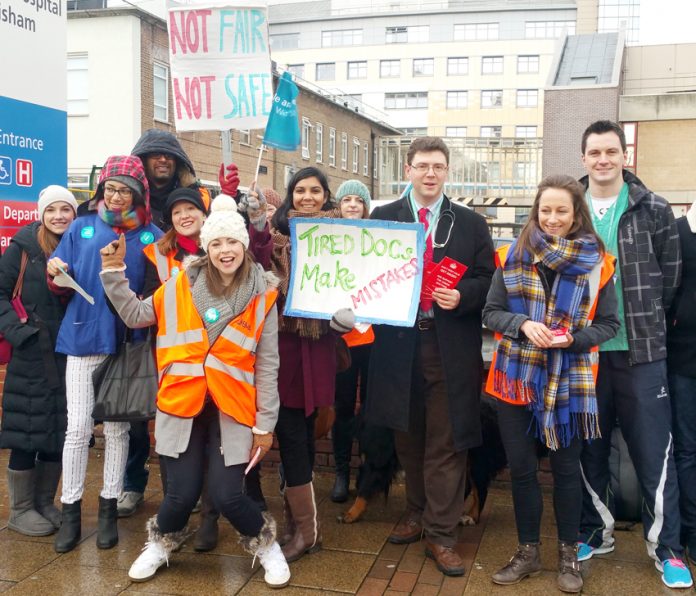
JUNIOR doctors are being left in charge of A&Es for entire shifts without a single senior doctor on the ward, new figures have revealed, with at least 8,000 doctors’ shifts left uncovered last year in London alone.
This, junior doctors rightly insist, have led to the remaining staff feeling burned out, putting patients safety in jeopardy. Dr Jeeves Wijesuriya, chair of the BMA’s junior doctor’s committee, said these missing shifts were part of the acute A&E recruitment crisis.
He said: ‘This is symptomatic of a problem we’ve said has existed for some time, and is not just true in London but nationwide. We are seeing increasingly a recruitment and retention crisis worsening due to poor long-term workforce planning and because of the realities of poor working practice.’
He said doctors who had left NHS training jobs told the BMA they were leaving due to a lack of work flexibility, feeling burnt out covering gaps, and the limited training opportunities due to pressure on the system. The British Medical Association (BMA) also warned care can be compromised when doctors are overstretched.
Amar Mashru, an A&E doctor in London, said: ‘This is something that happens commonly and is something A&E doctors are very used to; coming on to shift and realising that that day’s staffing is not filled.’
He said a lack of adequate staffing meant doctors were not able to give patients the service they would want to. The largest number of unfilled shifts was recorded at the Barking, Havering and Redbridge Trust which had 3,540, according to a Freedom of Information (FOI) request.
Lewisham and Greenwich Trust recorded 979 unfilled shifts last year, whilst Croydon Trust recorded 782 shifts not filled. Figures from a recent BMA survey of 1,000 doctors found 68% had been asked to act up into more senior roles or cover for more junior colleagues, while 65% said medical trainees at their trusts were pressured to take on extra shifts.
Meanwhile, salaried doctors and dentists working in Scotland are to receive a 3% pay rise. BMA Scotland, said the deal was ‘just not good enough’. BMA Scotland said the announcement would have ‘very little impact’ on what it claimed were real-term reductions in pay rates of about 20% over the last 10 years.
The organisation’s chairman Peter Bennie said: ‘We recognise the Scottish government has not mirrored the completely unacceptable decisions made by the Westminster government on doctors’ pay in England, particularly by rightly applying the award across the whole financial year.
‘However, it is extremely disappointing and a cause of serious concern that consultants, who lead the frontline delivery of medical care in hospitals, have been singled out for a significantly lower pay award.
‘Indeed, apart from junior doctors, all sections of the profession have effectively received an award below the independent recommendations of the pay review body, which is simply not good enough.
‘Everything possible should be being done to make doctors feel valued and ensure that working in Scotland is as attractive as possible across all stages of a doctor’s career.’